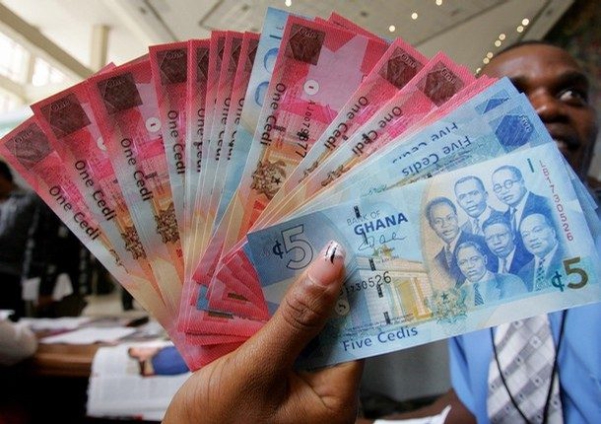Currency outside banks grew stronger in the first four months of this year than the same period last year when covid-19 pandemic emerged, data from the Bank of Ghana has shown.
This meant more notes and coins were in circulation, amongst household and business consumers, to stimulate spending and subsequently economic growth.
It grew by 46.3% in January 2021, 45.2% in February 2021, 41.6% in March 2021, 38.0% in April 2021 respectively.
The numbers for the last quarter of last year when the Presidential elections took place were no different from the first four months of this year. The currency in circulation grew by 43.7% in September 2021, 44.0% in October 2021, 46.4% in November 2021 and 45.5% in December 2021 respectively.
However, it comes as a bit of a surprise because of the tight low spending budget for this year.
But the increase in money supply will help fast track the country’s post covid-19 economic recovery. That could also facilitate spending in the various sub-sectors of the economy and as a result increase in the total value of goods and services.
Furthermore, this could also indicate that the economy is liquid, contrary to the recent under subscription of Treasury bills sale which was as a result of tightened liquidity on the interbank market. Demand deposits, usually current and call accounts witnessed growth in the first four months of this year, better than same period last year. It grew by 36.0%, 28.0%, 28.3% and 22.0% in January 2021, February 2021, March 2021 and April 2021 respectively.
Banks prioritized demand deposits because it comes virtually with no cost but rather support profitability of the financial institutions.
For Savings & Time Deposits, it also witnessed significant growth, far better than last year.
BoG cuts Policy Rate to 13.5%
The Monetary Policy Committee of Bank of Ghana cut its key lending rate to commercial Banks by 100 basis points to 13.50% on Monday, the first time Since November 2019.
According to the Governor of the Bank of Ghana, Dr. Ernest Addison, the move was influenced by a pick-up in economic activities and recovery towards pre-pandemic levels.
The move is expected to impact on the cost of credit in the next two months and stimulate economic growth.
Latest Stories
-
Death toll from Nigeria flash floods rises to 151
3 minutes -
Kumasi, Tamale airports extend operational hours
7 minutes -
At least seven dead after two Russian bridges collapse
9 minutes -
Man United sign Matheus Cunha from Wolves
15 minutes -
Report tomorrow or face INTERPOL Red Notice – OSP warns Ofori-Atta
23 minutes -
Thomas Partey Tournament returns to unearth Ghana’s next football stars
47 minutes -
40,000 students to access GH₵499 million loan this year – Haruna Iddrisu
48 minutes -
Police arrest 2 suspects in gruesome murder at Tema
1 hour -
30 suspects arrested as IGP orders raids on galamsey hotspots in 3 regions
2 hours -
BlowChem announces price reductions on beverages, effective June 1
3 hours -
When lawmakers themselves appear unwilling to abide by the laws they legislate
6 hours -
Mahama promises 200,000-hectare cocoa expansion to revitalise industry
7 hours -
Communications Minister unveils gov’t’s digital inclusion plan for PWDs
7 hours -
Youth group accuses judiciary of undermining anti-corruption efforts
7 hours -
Parliament recommends ratification of WTO agreement on fisheries subsidies
7 hours

